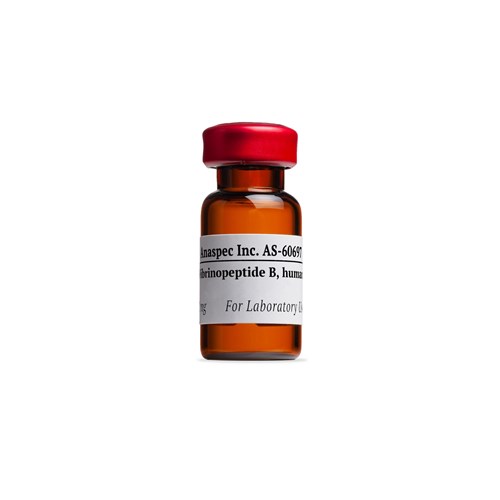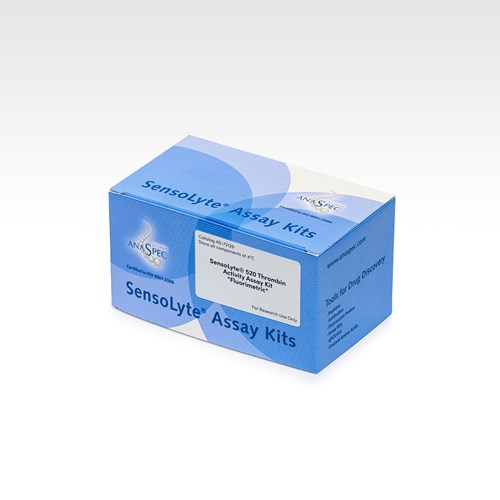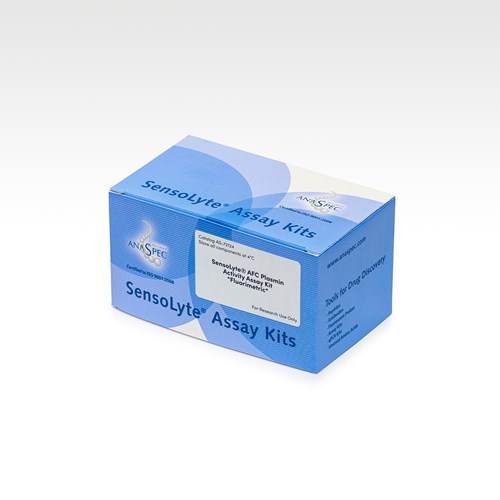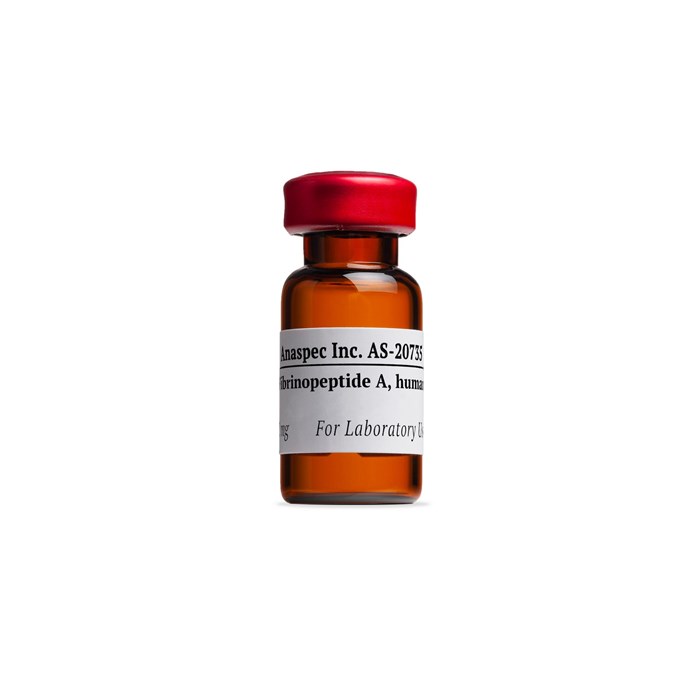Fibrinopeptide A, human - 1 mg
- Cat.Number : AS-20735
- Manufacturer Ref. :
-
Availability :
In stock
Fibrinopeptides A and B (FPA and FPB) are short amino acid sequences located at the N-terminus of fibrinogen A and B, respectively. Fibrinopeptide A is a 16-amino acid cleavage product induced by thrombin. Together with Fibrinopeptide B, it uncovers the E domain of fibrinogen. The residual protein, fibrin monomer, polymerizes to form fibrin clot. Thus, liberation of approximately 4 ng/ml of FPA per milligram of fibrinogen is closely linked to clot formation. Because proteolysis of fibrinogen accelerates early after the onset of thrombosis, marked elevations in FPA levels are expected early after the onset of clotting. Elevation of Fibrinopeptide A levels in plasma is seen in association with disorders such as disseminated intravascular coagulation, deep venous thrombosis, arterial thrombosis, and malignancy. Given the short half-life of FPA in plasma (3-5 min) and the conversion of fibrinogen to fibrin is particularly rapid and early during the course of thrombosis, measuring for elevated FPA levels in samples obtained very early after the onset of symptoms of transmural infarction would be beneficial to assess association with acute coronary thrombosis. Elevated FPA levels appear to be a marker during the course of coronary thrombosis .
Specifications
| Chemistry | |
| Sequence one letter code |
|
|---|---|
| Sequence three letter code |
|
| CAS registry number |
|
| Molecular Formula |
|
| Molecular Mass/ Weight |
|
| Modification | |
| Conjugation |
|
| Quantity & Purity | |
| Purity |
|
| Storage & stability | |
| Form |
|
| Storage Conditions |
|
| Activity | |
| Biomarker Target | |
| Research Area | |
| Sub-category Research Area | |
| Usage |
|
| Source | |
| Source / Species |
|
You may also be interested in the following product(s)


SensoLyte® 520 Thrombin Activity Assay Kit Fluorimetric - 1 kit

SensoLyte® AFC Plasmin Activity Assay Kit Fluorimetric - 1 kit
Citations
Fragmentation of Singly Protonated Peptides via Interaction with Metastable Rare Gas Atoms.
Anal Chem . 2009 Jan 15 ; 81(2) 725 | DOI : 10.1021/ac802214e
- V. Berkout
References
Fibrinopeptide A: a marker of acute coronary thrombosis.
Circ . 1985 May 01 ; 71(5) 912 | DOI : https://doi.org/10.1161/01.CIR.71.5.912
- PR. Eisenberg
- et al

